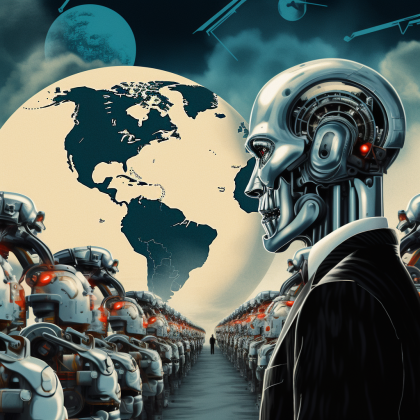
Will Machines Rule the World?
Conference
The Karel Čapek Center for Values in Science and Technology cordially invites you to attend the conference Will Machines Rule the World?
Keynote Speaker: Barry Smith, University at Buffalo, NY, USA.
Barry Smith will deliver the keynote speech Artificial Intelligence and the Future of Humanity.
Abstract of the speech
There are many who assume that, as AI systems become ever more powerful, machines are predestined to exceed the intelligence of human beings and thereby reach a point where they will one day rule the world. Nick Bostrum, one of the leading advocates of ideas along these lines, distinguishes a number of different scenarios for the future of humanity under these conditions, ranging from total extinction to what he calls 'posthumanity', when humans as we know them now will have evolved into entities of a new species.
The talk will begin with a critique of such views, drawing on Smith’s recent book (Why Machines Will Never Rule the World, co-authored with Jobst Landgrebe). Views like those of Bostrom will be shown to rest on a misunderstanding of both the powers of computers and the biology of human beings. It will then focus on what would be required of machines if they were indeed to take over the world -- namely they would be required to have something like the human will, which means intention, motivations, desires analogous to those which humans bring into play throughout their lives. Machines can demonstrate a rudimentary emulation of human will in certain situations. But they can achieve this only in the sorts of closed systems manifested in the playing of games with fixed rules and a fixed game-space. An example is AlphaGO, where the machine would seem to manifest a species of desire, namely to win when playing the game of GO. Game-playing machines like AlphaGO, however, have the special feature, namely that it is possible for the computer to assign a mathematical reward for each and every move in the game. This means that we can enable the computer to play millions and millions of games with itself and thereby identify strategies that can win even against human GO masters. Cases such as this foster the illusion that the machine has desires and motivations. Approaches along these lines are, however, never applicable to the sorts of open systems in which humans live their lives.
Cookies
